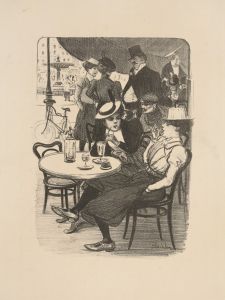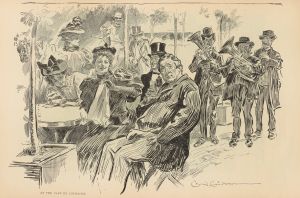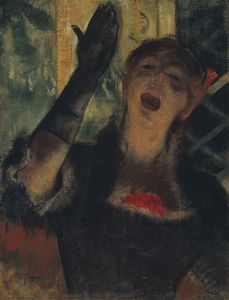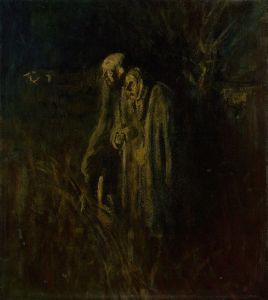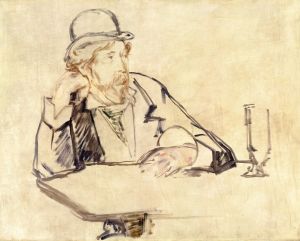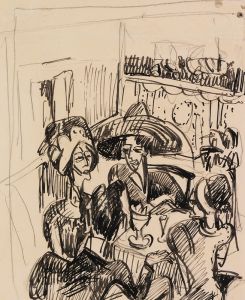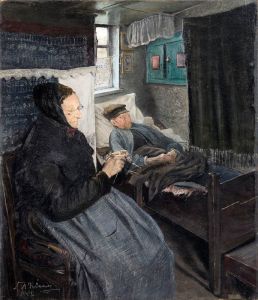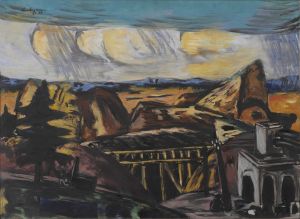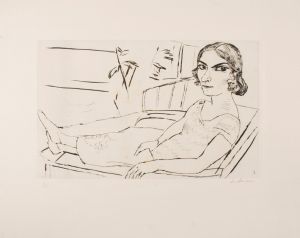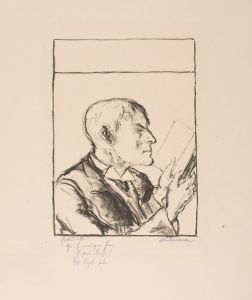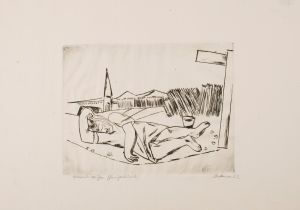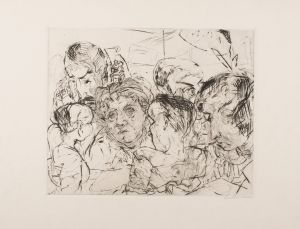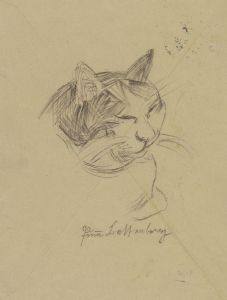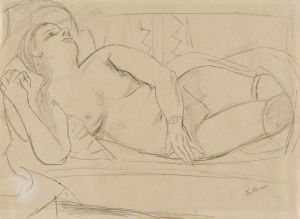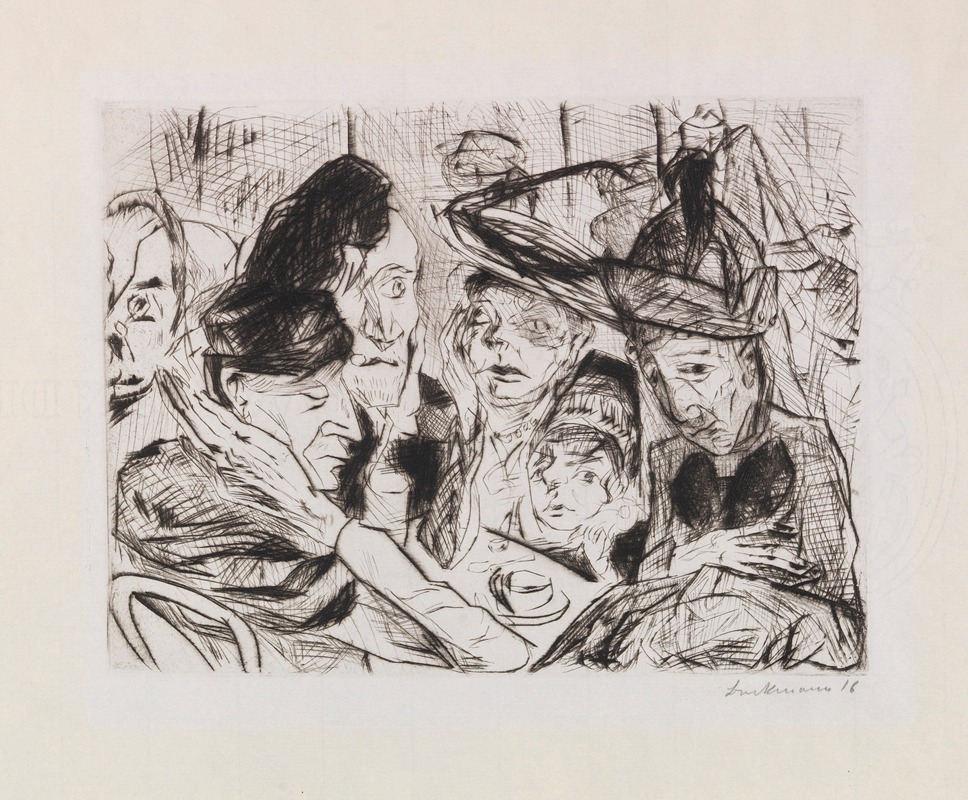
Café
A hand-painted replica of Max Beckmann’s masterpiece Café, meticulously crafted by professional artists to capture the true essence of the original. Each piece is created with museum-quality canvas and rare mineral pigments, carefully painted by experienced artists with delicate brushstrokes and rich, layered colors to perfectly recreate the texture of the original artwork. Unlike machine-printed reproductions, this hand-painted version brings the painting to life, infused with the artist’s emotions and skill in every stroke. Whether for personal collection or home decoration, it instantly elevates the artistic atmosphere of any space.
Max Beckmann's "Café" is a notable work by the German painter, who is recognized as one of the leading figures of the New Objectivity movement, which emerged in the Weimar Republic during the 1920s. Beckmann's art is characterized by its bold forms, intense colors, and often complex compositions that reflect the social and political turbulence of his time.
"Café" was painted in 1942, during a period when Beckmann was living in Amsterdam, having fled Germany in 1937 due to the rise of the Nazi regime, which had labeled his work as "degenerate art." This painting is a part of Beckmann's broader exploration of urban life and the human condition, themes that he frequently revisited throughout his career.
The painting depicts a café scene, a common subject in Beckmann's oeuvre, reflecting his interest in public spaces as microcosms of society. The café, as portrayed by Beckmann, is not merely a place for leisure but a setting where various facets of human life converge. The figures in the painting are often depicted in a manner that suggests introspection or detachment, a reflection of the existential themes that Beckmann explored in his work.
Beckmann's style in "Café" is marked by his use of strong, expressive lines and a rich, vibrant palette. The composition is typically dense, with figures and objects closely packed together, creating a sense of tension and dynamism. This stylistic approach is indicative of Beckmann's ability to convey complex emotional and psychological states through his art.
The period during which "Café" was created was one of significant personal and professional challenges for Beckmann. Living in exile, he was cut off from the cultural life of Germany and faced the uncertainties of life in a war-torn Europe. Despite these difficulties, Beckmann continued to produce work that was both innovative and deeply reflective of the human experience.
"Café" can be seen as a continuation of Beckmann's exploration of themes such as alienation, identity, and the search for meaning in a rapidly changing world. The painting's setting in a café, a place of social interaction, underscores the tension between individual isolation and the desire for connection, a recurring motif in Beckmann's work.
Max Beckmann's contribution to modern art is significant, and "Café" exemplifies his ability to capture the complexities of modern life with both technical skill and emotional depth. His work remains influential, offering insights into the human condition that continue to resonate with contemporary audiences.
In summary, "Café" by Max Beckmann is a powerful example of the artist's engagement with the social realities of his time, rendered through a distinctive style that combines boldness with introspection. The painting stands as a testament to Beckmann's enduring legacy as a master of modern art.





